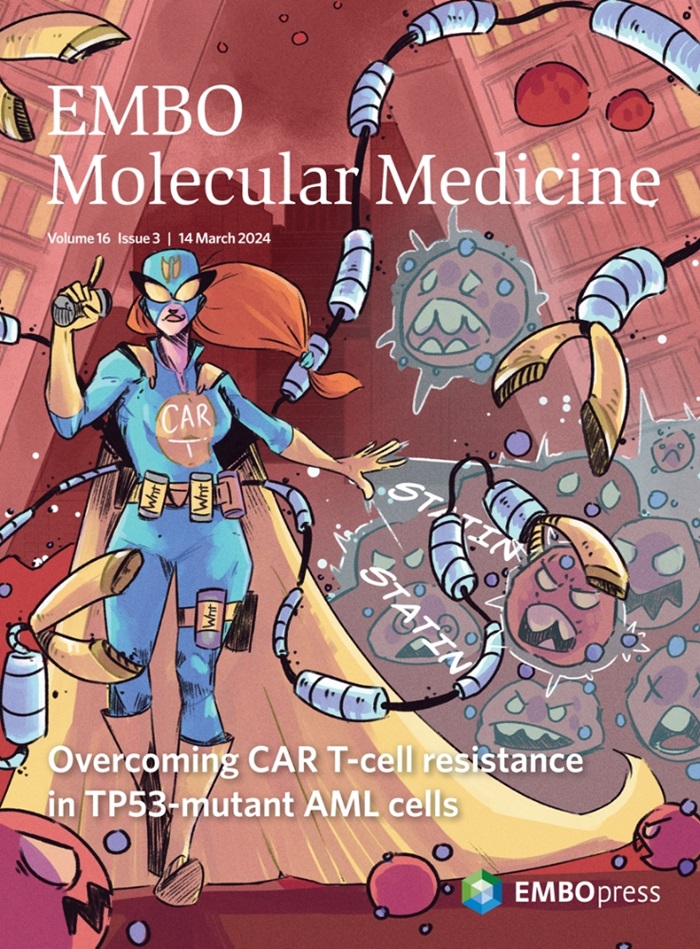Interplay between fungal infections and autoimmunity: mechanisms and therapeutic perspectives.
IF 8.3
1区 医学
Q1 MEDICINE, RESEARCH & EXPERIMENTAL
引用次数: 0
Abstract
Fungal infections and autoimmunity share a complex, bidirectional relationship that significantly impacts patient outcomes. Emerging evidence highlights how fungal pathogens contribute to autoimmune processes by triggering immune dysregulation. Conversely, autoimmunity and its immunomodulatory treatments increase susceptibility to fungal infections. These interactions manifest through altered immune responses, including changes in inflammatory signaling, antigen recognition, and mycobiome composition. The resulting interplay complicates disease management, necessitating careful balancing of antifungal defenses with immune modulation. This review synthesizes current knowledge on the role of fungal infections in the progression of autoimmune conditions and explores how autoimmune diseases predispose individuals to fungal infections. Key insights emphasize the need for integrative treatment approaches, addressing both infection risks and immune system imbalances.真菌感染和自身免疫之间的相互作用:机制和治疗观点。
真菌感染和自身免疫具有复杂的双向关系,显著影响患者的预后。新出现的证据强调了真菌病原体如何通过引发免疫失调来促进自身免疫过程。相反,自身免疫及其免疫调节治疗增加了对真菌感染的易感性。这些相互作用表现为免疫反应的改变,包括炎症信号、抗原识别和真菌组组成的改变。由此产生的相互作用使疾病管理复杂化,需要仔细平衡抗真菌防御和免疫调节。这篇综述综合了真菌感染在自身免疫性疾病进展中的作用,并探讨了自身免疫性疾病如何使个体易患真菌感染。关键的见解强调需要综合治疗方法,解决感染风险和免疫系统失衡。
本文章由计算机程序翻译,如有差异,请以英文原文为准。
求助全文
约1分钟内获得全文
求助全文
来源期刊

EMBO Molecular Medicine
医学-医学:研究与实验
CiteScore
17.70
自引率
0.90%
发文量
105
审稿时长
4-8 weeks
期刊介绍:
EMBO Molecular Medicine is an open access journal in the field of experimental medicine, dedicated to science at the interface between clinical research and basic life sciences. In addition to human data, we welcome original studies performed in cells and/or animals provided they demonstrate human disease relevance.
To enhance and better specify our commitment to precision medicine, we have expanded the scope of EMM and call for contributions in the following fields:
Environmental health and medicine, in particular studies in the field of environmental medicine in its functional and mechanistic aspects (exposome studies, toxicology, biomarkers, modeling, and intervention).
Clinical studies and case reports - Human clinical studies providing decisive clues how to control a given disease (epidemiological, pathophysiological, therapeutic, and vaccine studies). Case reports supporting hypothesis-driven research on the disease.
Biomedical technologies - Studies that present innovative materials, tools, devices, and technologies with direct translational potential and applicability (imaging technologies, drug delivery systems, tissue engineering, and AI)
 求助内容:
求助内容: 应助结果提醒方式:
应助结果提醒方式:


